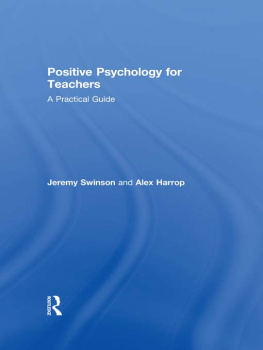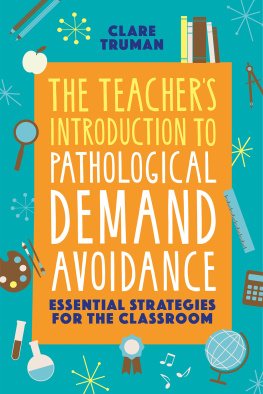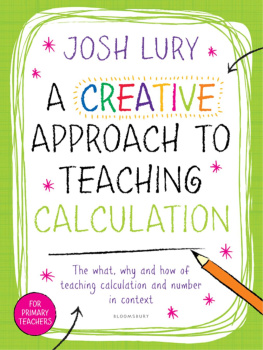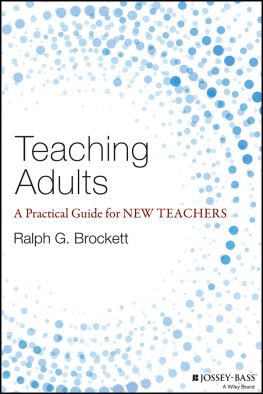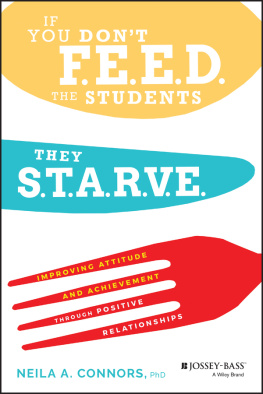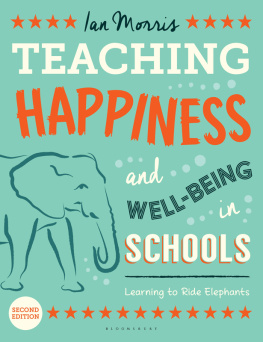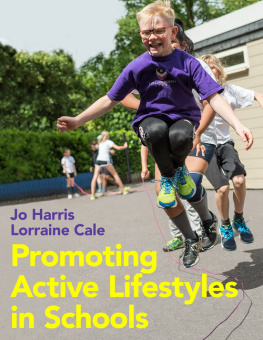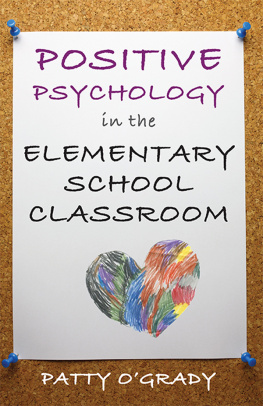Positive Psychology for Teachers
Practical, actionable information about the positive behavioural approach to education is in desperately short supply, and yet when implemented properly the impact on school behaviour and achievement can be enormous.
Positive Psychology for Teachers aims to address this gap. Written by experienced practitioners, it gives teachers simple and direct advice on how they can use the positive behavioural approach for the benefit of their pupils and schools.
Based on the authors own experiences of intervention in school settings and evidence of its effectiveness, this practical guide includes a number of vignettes and case studies illustrating how the behavioural approach has been used by teachers in a wide variety of classrooms to make their teaching more effective. Each case study will be followed by a number of suggested practical activities for classroom implementation. Throughout the book, background theory is explained in a concise and easily digestible manner and activities are clearly explained, with benefits and end goals clearly signposted.
Areas covered include:
- Whole school interventions, turning around under-performance
- Reducing disruptive behaviour in the classroom
- Improving creative writing and increasing reading attainment
- Improving pupils self-concepts
- SEN interventions including autism, children with challenging behaviour and those classified as having social, emotional and behavioural difficulties
- The difference between teachers treatment of boys and of girls
- Strategies for turning around the behaviour of very difficult pupils
This practical user-friendly text is aimed directly at trainee and practising teachers but would also be very relevant to those working with trainee teachers in university departments and to educational psychologists.
Jeremy Swinson is Principal Educational Psychologist for the Witherslack Group of Schools.
Alex Harrop is Emeritus Professor in Psychology at Liverpool John Moores University, UK.
First published 2012
by Routledge
2 Park Square, Milton Park, Abingdon, Oxon OX14 4RN
Simultaneously published in the USA and Canada
by Routledge
711 Third Avenue, New York, NY 10017
Routledge is an imprint of the Taylor & Francis Group, an informa business
2012 Jeremy Swinson and Alex Harrop
The right of Jeremy Swinson and Alex Harrop to be identified as authors of this work has been asserted by them in accordance with sections 77 and 78 of the Copyright, Designs and Patents Act 1988.
All rights reserved. No part of this book may be reprinted or reproduced or utilised in any form or by any electronic, mechanical, or other means, now known or hereafter invented, including photocopying and recording, or in any information storage or retrieval system, without permission in writing from the publishers.
Trademark notice : Product or corporate names may be trademarks or registered trademarks, and are used only for identifi cation and explanation without intent to infringe.
British Library Cataloguing in Publication Data
A catalogue record for this book is available from the British Library
Library of Congress Cataloging in Publication Data
1. Educational psychology. 2. Classroom management. 3. Behavior
modifi cation. I. Harrop, Alex. II. Title.
LB1051.S94 2012
370.15dc23
2011049346
ISBN: 978 041568676 1 (hbk)
ISBN: 978 041568677 8 (pbk)
ISBN: 978 020380006 5 (ebk)
Typeset in Bembo
by RefineCatch Limited, Bungay, Suffolk
This book is dedicated to Michael Harrop and Andrew Swinson, both of whom died too young to show the world what might have been.
Acknowledgements
In writing this book, we have been influenced by many friends and colleagues who have shaped our thinking and been critical judges of our various endeavours. We would especially like to thank Mike Cording and Richard Melling who were instrumental in developing Four Essential Steps and Brian Parsons who read the initial drafts of this book and gave us some thought-provoking feedback from a teachers perspective. We would also like to thank the teachers and pupils who over the past 30 years have allowed us to observe them in their classrooms.
Finally, thanks are due to our respective partners, Sally and Lynne, without whose tolerance, good humour and cups of tea this book would not have been completed.
Preface
made by Martin Seligman to the American Psychological Society in 1998 in which he made the point that, during much of the last half century, psychology has been concerned with mental illness and with alleviating disorders to such an extent that it has turned attention away from any consideration of what makes life wThe term positive psychology is comparatively recent. It derives from an addressorth living. While accepting that psychology has been successful in helping individuals with disorders, he maintained that psychologists should also be thinking positively, not exclusively negatively. Positive psychology, in Seligmans view, should be concerned with happiness and well-being.
Seligmans address was particularly aimed at clinical psychologists and those working in psychiatry whose job often entails giving an explanation for some unusual types of behaviour and helping to devise a treatment plan for individuals who have mental health problems. His criticism, however, is equally relevant to educational psychologists who work in schools. Educational psychologists are usually asked to see those pupils who have problems with their learning or their behaviour or else they may be consulted for advice on how to help schools improve some aspect of their overall functioning such as how to increase their attendance figures or reduce their number of exclusions. Never, in our experience, has an educational psychologist been asked to look at pupils who are coping well and see how they could gain more from their time in school. As a consequence, educational psychologists have tended to become problem solvers when things go wrong or are in need of improvement.
In education, the notion of positive psychology has gained some credence. In 2005 the British government introduced SEAL (Social and Emotional Aspects of Learning) to all primary and secondary schools in England and Wales, an initiative aimed at enhancing pupils emotional well-being. The ideas behind the programme came from writers such as Goleman (2005), who developed the concept of emotional intelligence. Goleman argued that emotional intelligence, which included the elements of empathy, happiness, social understanding and resilience, is just as important in determining successful outcomes for children as is their cognitive intelligence. The SEAL programme, which comprised weekly lessons aimed at enhancing emotional intelligence, was received enthusiastically by many teachers. Evaluation of the programme has, however, proved to be difficult, as has any evaluation of effects the programme may have on other aspects of childrens learning.
While Seligmans address gave a strong impetus to psychologists to concern themselves with the more positive side of individuals there were, of course, a number of applications of positive psychology at work before that address. In educational psychology, we have known for some time now that positive approaches, be they in the form of reward systems in schools or positive encouragement from teachers, are the key to successful learning and well-behaved classes. The earliest account we could find in the research literature dates from the time of the Great War, when Gilchrist (1916) reported improvements in pupils test performance as a result of praise from teachers.

